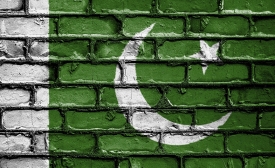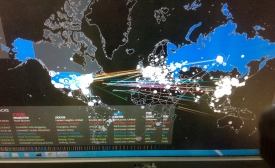e-diplomacy
According to Twiplomacy Study 2017, 92 percent of UN member states including government heads and foreign ministers are present on Twitter, and 88 percent are present on Facebook. Therefore, countries such as Pakistan that do not yet have a centralized social media policy to communicate with the foreign public, face the need to develop digital diplomacy platforms.

Muhammad Ittefaq discusses the need for Pakistan to improve its digital diplomacy.
It was only a few years ago that e-diplomacy was being heralded as an unalloyed force for good. This 21st Century form of statecraft would bring transparency and openness to the closeted world of international affairs...U.S. President Donald Trump has obviously highlighted the dangers of conducting foreign policy by social media. In the hands of the impulsive and uniformed, the smart phone becomes a dangerous weapon.
Mark McDowell was a career diplomat for 20 years with the Canadian Foreign Service, where he made a name for himself as a pioneer in e-diplomacy. Defying the strictures of government bureaucracy, he pushed use of the internet and social media to engage with foreign publics and bring about cultural exchange. Mark brought his web-savvy and unconventional approach to public diplomacy to Myanmar
Digital diplomacy is a hot topic. Embassies all over the world increasingly use social media as a low-cost and convenient tool to promote their countries, inform people about their latest activities and engage with their followers. Many embassies can be found on Facebook, Twitter or Youtube, but also on China’s Sina Weibo or WeChat, changing the way foreign embassies engage with with local audiences in China.
The debate about diplomacy in the digital age has been recklessly profligate with terminology. Terms such as e-diplomacy, cyber diplomacy or digital diplomacy have been used almost interchangeably, with each author sticking to his/her favorite. This not only wastes three perfectly good terms where one could do (denying us the other two for other purposes). It also conceals considerable confusion about the relationship between diplomacy and the digital world.

Let's define our terms, says Shaun Riordan.







